How The Vassar Network Fuels Success
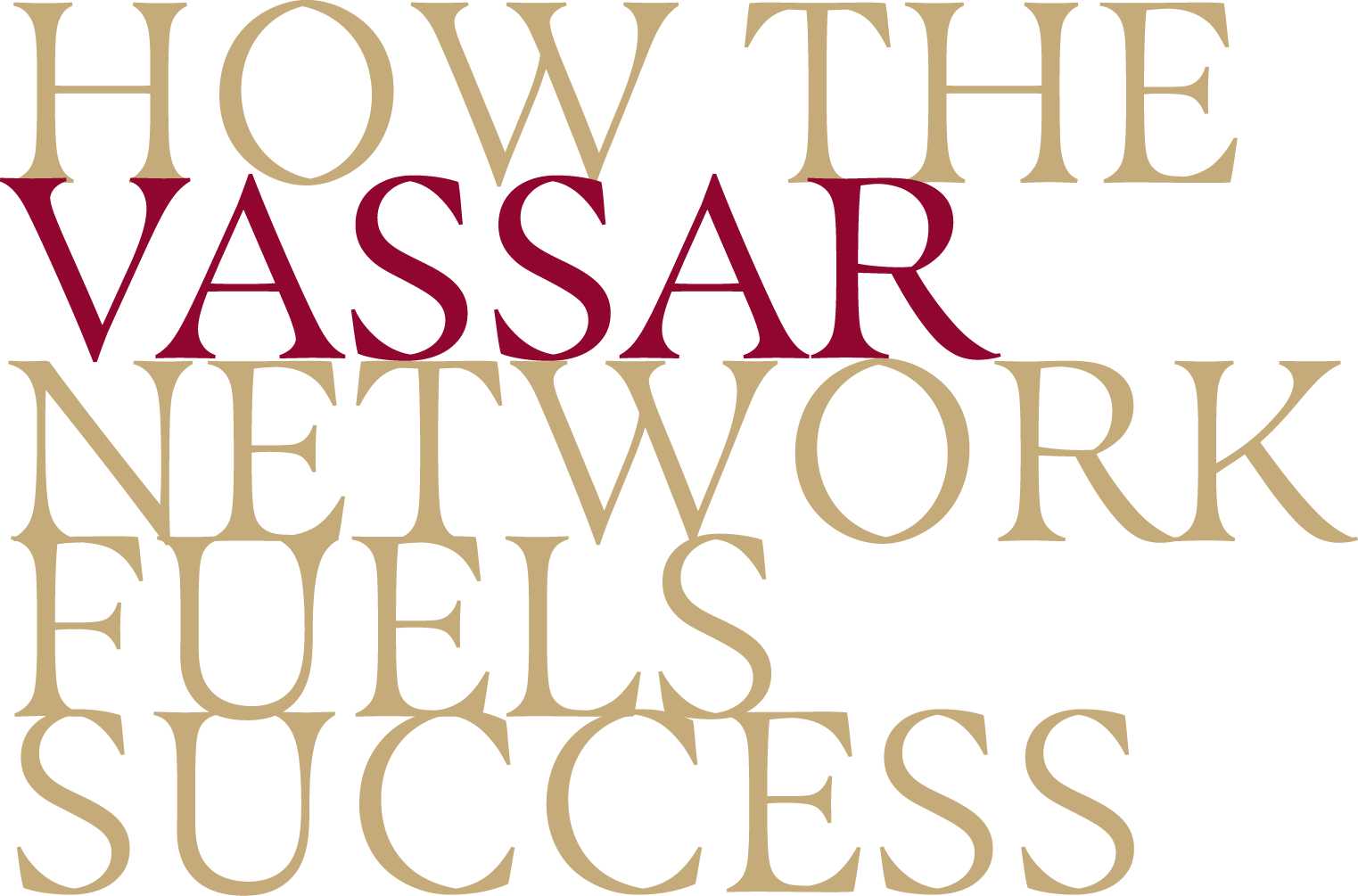
long with their liberal arts education, Vassar students and graduates have a secret weapon: a passionate network of alums who are eager to open doors for one another at every career stage and in every field—from management consulting, finance, and tech to public service, nonprofits, and (of course) the arts. Here, we share some inspiring stories of connections made, dream jobs won, and the innovative, career-focused programs that are giving students a huge advantage before they graduate.
Like many liberal arts majors, Ellie Winter ’18, an Africana studies and media studies double major, didn’t start Vassar with any grand plan for what she wanted to do in life. “Actually, I had no idea,” laughs Winter, 28, who lives in Providence, Rhode Island. At first, the idea of turning to Vassar alums to help her figure out her path forward was a bit intimidating, if not off-putting. “My impression of networking and being mentored was sitting in front of someone in a big office with a tufted chair,” says Winter, who is the Digital Communications Manager at the Barr Foundation in Boston.
That impression changed radically during her sophomore year, when she became a student representative on the College’s Presidential Search Committee. Says Winter, “Being surrounded by Vassar alums at the peak of their careers, living their dreams, made me realize, ‘Oh, Vassar isn’t just a place where you come to learn. You can make connections and see yourself doing things you never thought possible.’”
That epiphany was solidified after Winter participated in Sophomore Career Connections (SCC) in 2016, throwing herself into a weekend of networking with alums who returned to campus in droves to meet students and participate in panel discussions about what they did for work and how they got there. “It made networking so approachable,” says Winter. With that newfound confidence, as the end of her senior year approached, Winter reached out to Anne Green ’93, an alum mentor in the communications field whom she’d met at SCC two years earlier. “Anne agreed to interview me,” Winter recalls, “and instead of a stranger, I felt like I was talking to someone invested in my growth.” Winter ended up getting a job at the firm Green worked for doing PR and corporate communications. “It was amazing to have someone looking out for me after I was hired,” Winter says. “I’ve always been so grateful for that gentle on-ramp to the working world!”
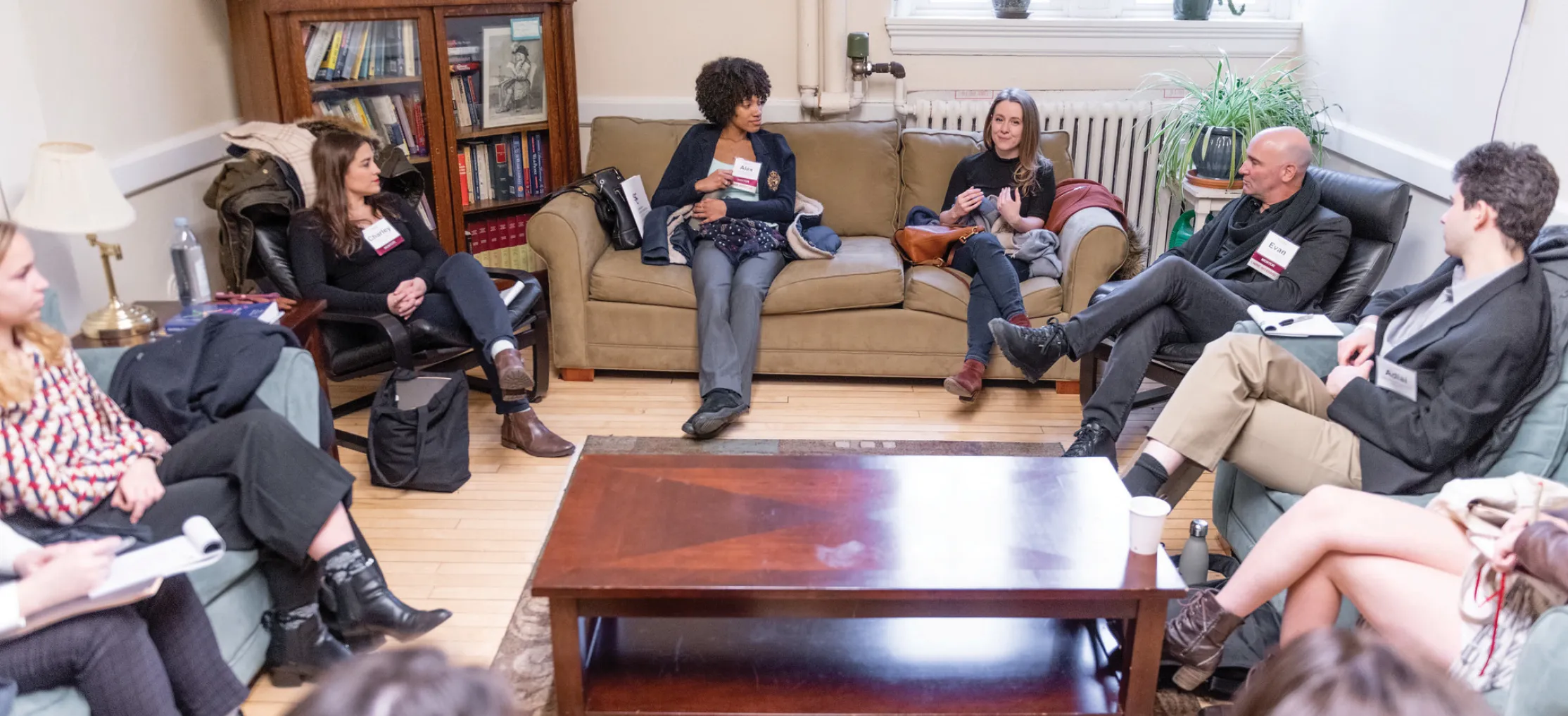
Karl Rabe
Career Help, the Liberal Arts Way
Resources such as the Internship Grant Fund and specialized fellowships like the Thompson Bartlett Fellowships for STEM and economics-related internships and the Tananbaum Fellowships for juniors add to the wealth of opportunities.
Additional support for Vassar-connected summer experiences comes from programs like Community Fellows, administered by the Office of Community-Engaged Learning, which allows students to work full time with Poughkeepsie nonprofits over the summer break; or the faculty-led Ford Scholars program and Undergraduate Research Summer Institute (URSI), where students can gain mentored research experiences with faculty. These programs create a remarkably efficient career pipeline, albeit with some zigging and zagging along the way.
One student who took advantage of several fellowships and mentoring programs is Hannah Van Demark ’15, a history major at Vassar and now a Strategy Manager at Nike who lives in Brooklyn, NY. As a Ford Scholar, she worked with history professor Robert Brigham conducting research on the International Criminal Court—even accompanying him and his family to Dublin for a symposium the summer after her first year at the College. “He really pushed me in my research; it was amazing to get a sense of what a career in academia might look like,” she says.
Her sophomore year, she went off to Bolivia, where she studied Spanish and interned for the Foundation for Sustainable Development courtesy of Vassar’s Ann Cornelisen Fellowship, which provided an $8,000 stipend. In Bolivia, she researched whether giving farmers even small loans could make a meaningful impact on their lives. Junior year, as a Tananbaum Fellow, she began zeroing in on her career goals—attending workshops on networking, interviewing, and career prep through the Center for Career Education, then nabbing a summer internship with the Senate Banking Committee. That led to her first real job after graduation, at the Federal Reserve Bank, where, like so many Vassar alums, she dove into mentoring right away.
Not surprisingly, Van Demark also returned to Vassar for SCC, both in 2017 (on the finance panel) and in 2024 (management consulting). “SCC brings career mentoring to a whole new level,” she says now. “It really helps students understand how the Vassar network can come into your life at different stages in your career.”
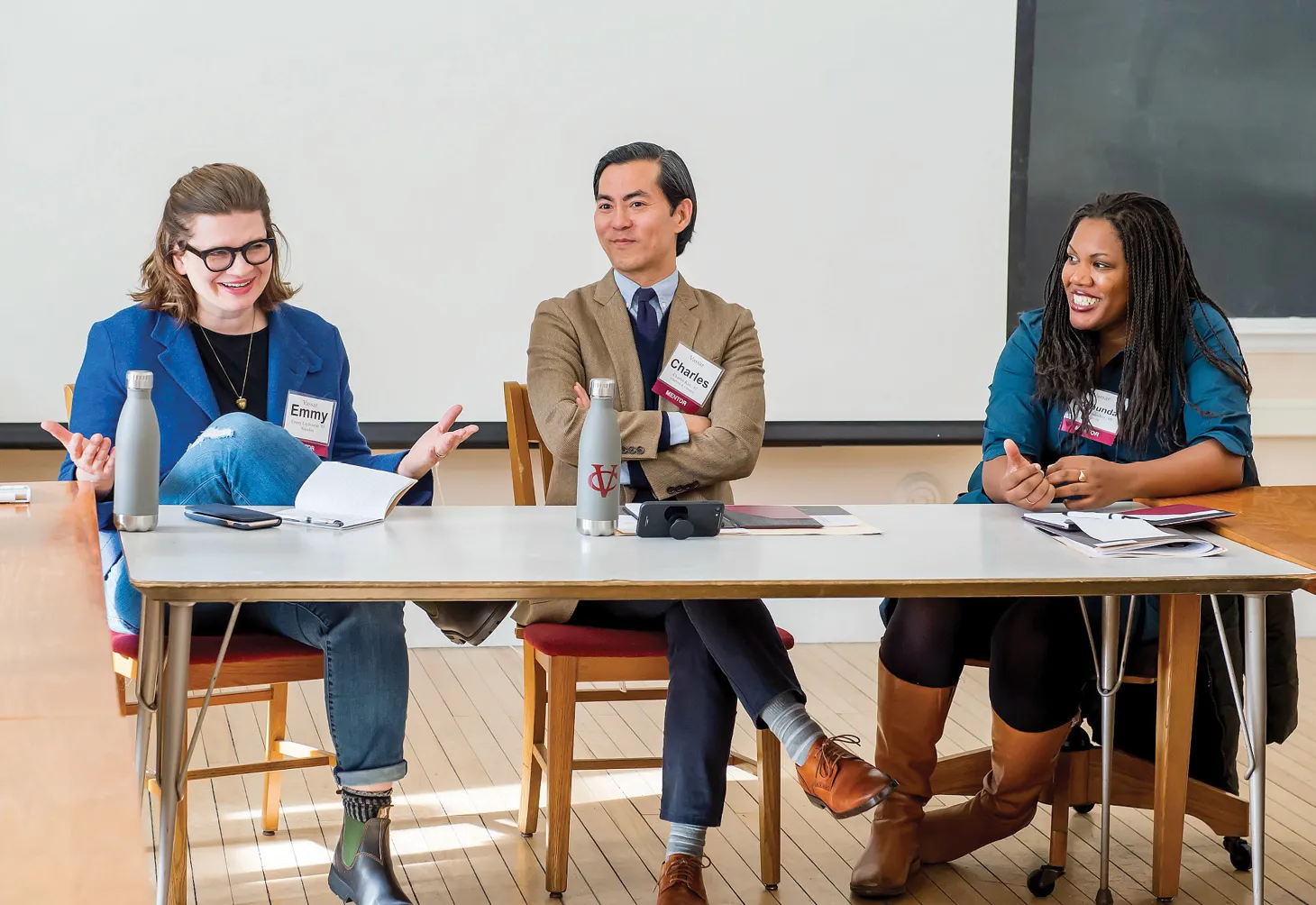
Beyond the opportunities at Vassar lies that exceptionally tight and motivated alum network, one committed to helping not just recent graduates, but also helping one another. Indeed, the idea for SCC was hatched by Vassar alum and parent Carol Ostrow ’77 and her husband Michael Graff (both P’09,’15) when the couple realized that their son, a new Vassar grad, could benefit from tapping into the Vassar network as he pursued a job in finance. “Carol and I thought that maybe Vassar students could use some help entering careers other than law, medicine, arts and entertainment,” says Graff, a Senior Advisor at Warburg Pincus. “At that point, more than a decade ago, there wasn’t a big pipeline to higher-paying jobs on Wall Street or in management consulting.” So, the couple approached Stacy Bingham, Associate Dean of the College for Career Education, with a question: What if we could bring alums back to campus to help?
And come they did. “We started with maybe 50 mentors in 12 different industries, and now we have 18 industries with five or six alums on each, all talking about how Vassar helped them formulate who they wanted to be and the kind of careers they would love—in short, how a liberal arts education helped them launch in all arenas,” says Ostrow, who is a member of Vassar’s Board of Trustees. A decade later, in SCC’s 10th anniversary year, she is particularly gratified that so many of those early SCC sophomores come back (often more than once) as mentors themselves.
“I like to say that the Vassar network is deep, it’s wide, and it’s brimming with goodwill,” says the CCE’s Bingham. One example she points to is Rachel Garbade ’15, an Assistant Archivist at the Museum of Modern Art in New York City. Garbade got her first job at the Garth Greenan Gallery in New York City after she reached out to Alison Dillulio ’13. Both had worked together on Contrast, Vassar’s style and art magazine. “I was doing a lot of informational interviews, and Allison and I went to lunch. By the end of the meal, she’d offered me a job at the gallery!” Garbade recalls.
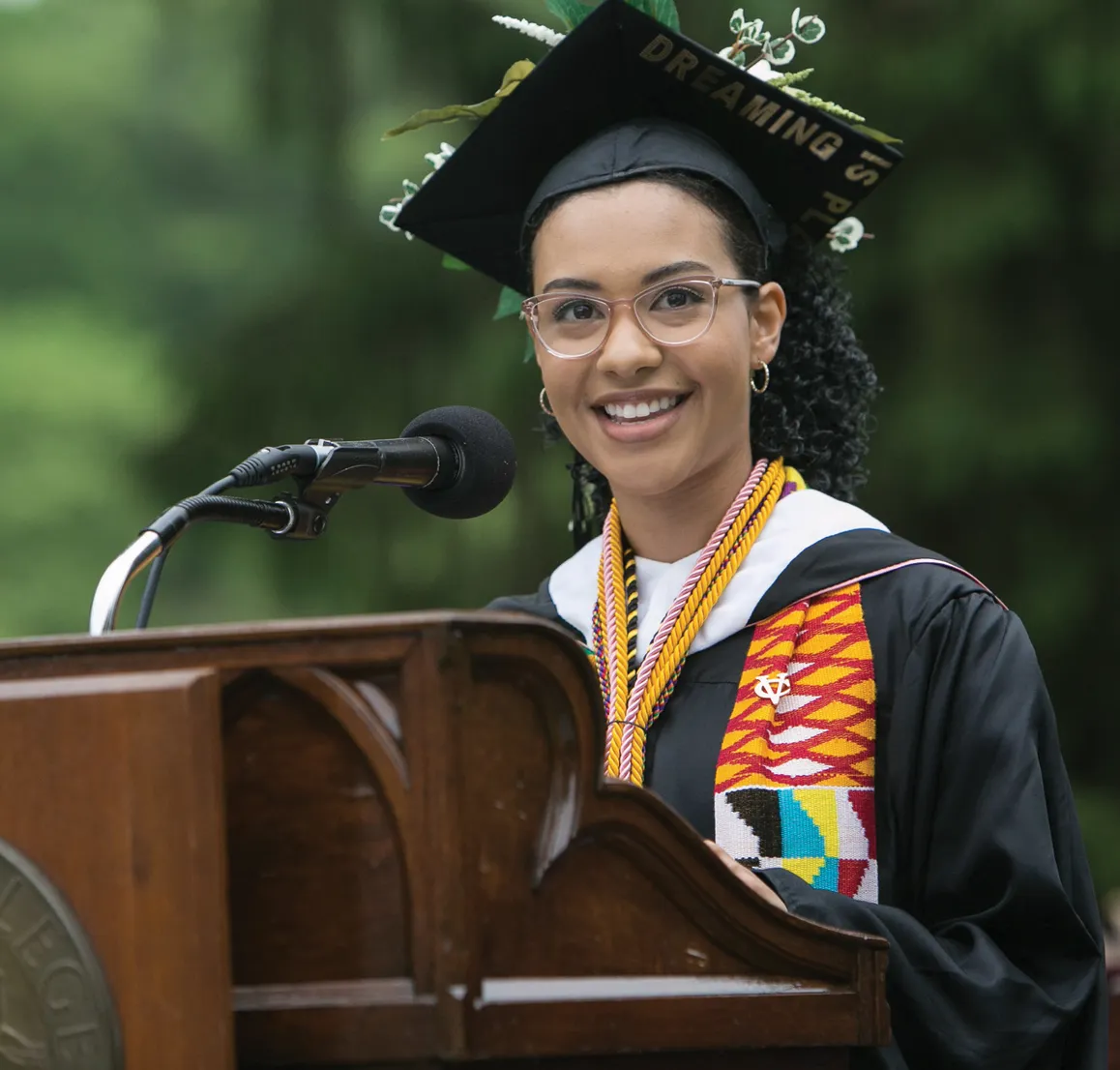
Still, when Garbade volunteered to be an alum mentor at SCC in 2020, just before the pandemic hit, she wasn’t necessarily expecting new friendships out of the weekend. “But I got to meet alums from different years,” she says, “and now I have all these off-class relationships.” One of these includes a member of the class of 2022, who attended SCC as a sophomore and came up to Garbade in the dining hall after hearing her speak on a panel on identity. “We were chatting and she asked me what it was like to be queer in the real world,” Garbade recalls. Soon after, the two became friends on Instagram, and now they get dinner in New York City every few months. “I feel like I am where I am today because of my Vassar network,” says Garbade. “I had all of these great mentors and great connections, and now I like to be those things for other people.”
That doesn’t surprise Carol Ostrow. “This year, we had 14 mentors who did SCC as sophomores,” she says. “So many of them say they come back because that weekend changed their lives and launched them into who they are today.”
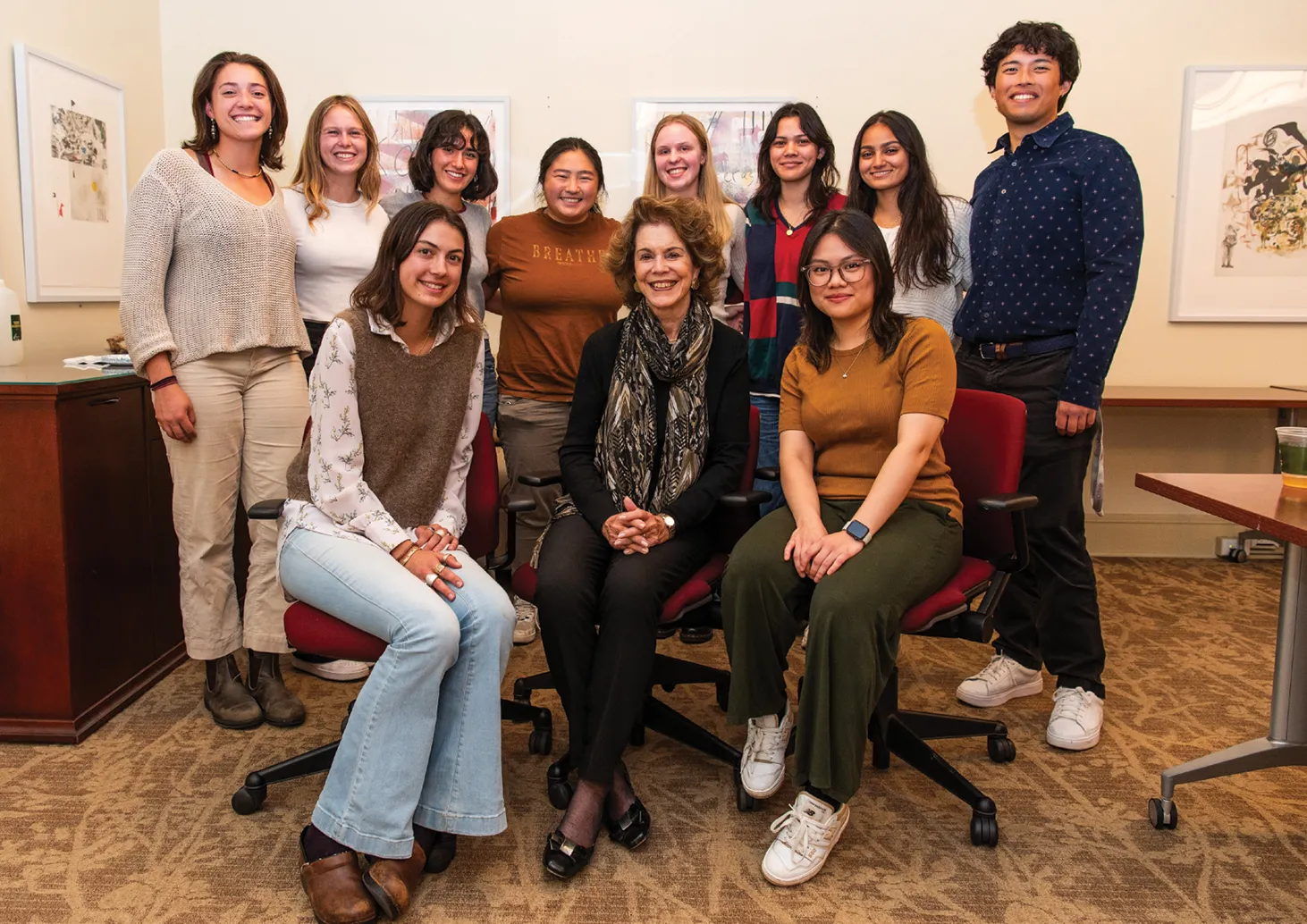
Everything, Everywhere, All at Once
Credit goes to the broad base of education Vassar students get in the classroom, including how to write, analyze, evaluate, and think critically—in other words, the fruits of a liberal arts curriculum. And though conventional wisdom holds that a liberal arts education doesn’t give students the skills they need to secure well-paying, satisfying careers, the numbers tell a different story. A 2020 study from the Georgetown University Center on Education and the Workforce found that while liberal arts graduates earn less than STEM and other graduates in the early years of their careers, over time, that disparity disappears—and then some. By 40 years after graduation, the median return on investment (ROI) of liberal arts colleges exceeds the median ROI of most other types of universities by 25 percent ($918,000 versus $723,000). Even more surprising, the 40-year median ROI of liberal arts institutions ($918,000) rivals those of four-year engineering and technology-related schools ($917,000), and four-year business and management schools ($913,000).
Those stats bear out for many Vassar graduates, as well. Answering the 2023 Vassar Alum Census for Vassar classes of 1953 to 2018, an impressive 92 percent of respondents said Vassar prepared them for a career; 94 percent said they are satisfied in those careers; and 95 percent said the benefits of a Vassar education outweigh the cost.
A Zig-Zagging Road to Success
Yet there’s an argument to be made that pivots and swerves can be a good thing in terms of finding a career that really fits. “We consistently see in our feedback from SCC that the students really appreciate getting to hear about the varied career paths and different twists and turns our alums take after Vassar,” says Swanson.
And it’s the so-called soft skills students pick up at Vassar that make them particularly well suited to pivoting in today’s volatile, rapidly changing world. At SCC this past January, that’s essentially what Munish Dabas ’02, a UX Engineer Lead at Google Play Games, told sophomores attending the tech panel. “I said that the number-one thing I picked up from Vassar was how to teach myself new things, which is important, because your career will meander,” says Dabas, who majored in computer science. “All the designers and engineers I work with are so focused on their hard skills, and I am, too, but I can also tell an effective story, put together a compelling PowerPoint, and influence people. Those are all things I picked up at Vassar.”
Employers seem to agree, given that within six months of graduation, 93 percent of Vassar alums are either employed, continuing their education, or participating in a fellowship or year-of-service program.
More evidence that liberal arts leads to success: A 2018 survey by the American Association of Colleges and Universities of more than 1,000 business executives and hiring managers found that the skills they valued most highly in graduates were effective speaking and writing, critical thinking, ethical judgment, a knack for teamwork, and real-world practical experience—the latter of which Vassar grads pick up in spades. A full 90 percent of students have benefitted from an internship or other experiential learning opportunity by graduation, well above the national average, according to Bingham.
“I think where a liberal arts education comes in handy is as people get five to ten years into their careers and hit manager and director levels,” says Charles Kim ’92, cofounder of Third State Books, which focuses on publishing Asian American voices and stories. “That’s when you have to advocate for yourself and your ideas, taking disparate pieces of information from multiple sources and forming an opinion, then cogently arguing for that opinion.”
Kim traces that ability in himself to a French literature class taken his first year at Vassar. “My professor, Madame Kerr [Cynthia Kerr, who retired in 2020], not only taught us great books but showed us how to tell the difference between a good book and a great book,” says Kim. “And she did it with such warmth that she made us feel as if our opinions mattered. That and the small classes made it easy to speak freely in front of others, which ends up coming in handy in the corporate and nonprofit world.”
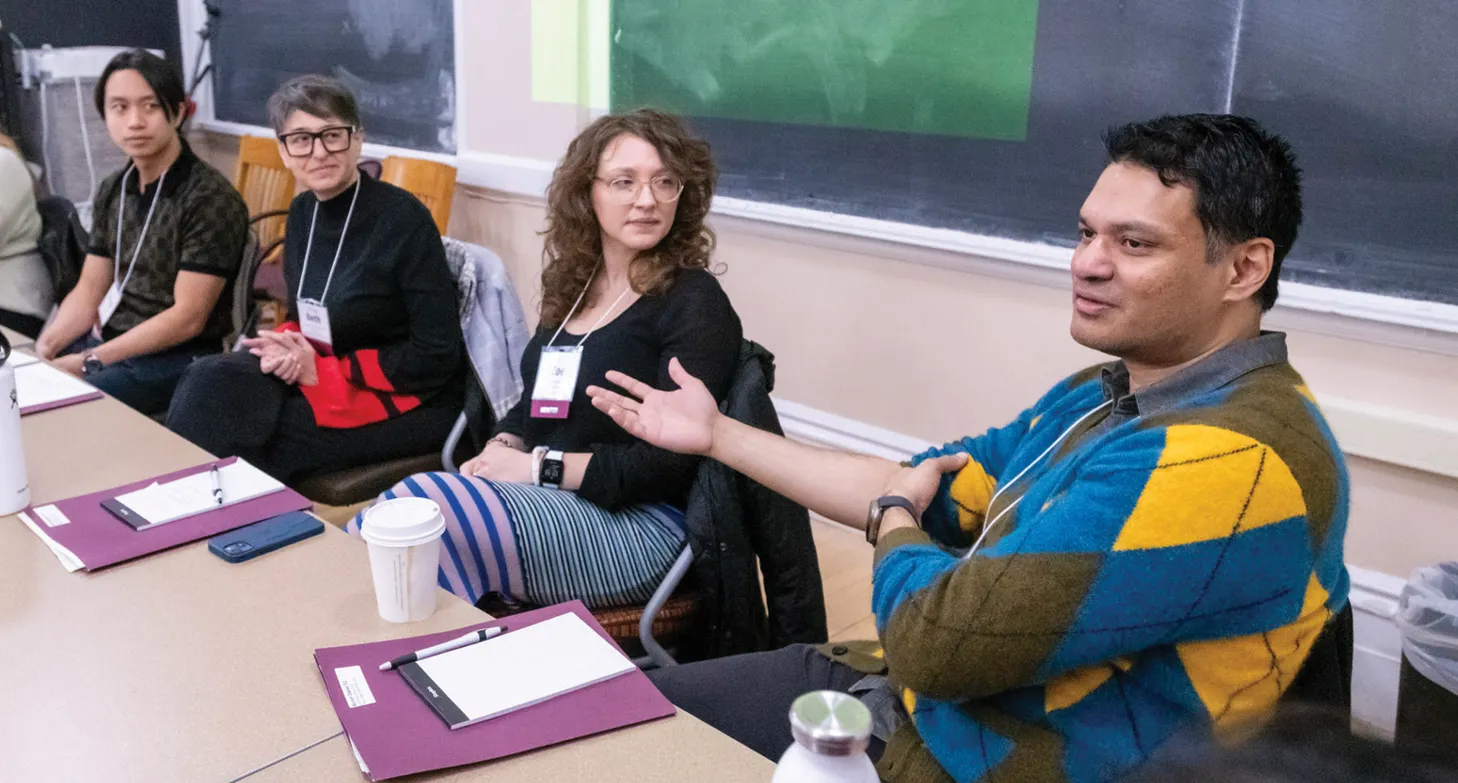
Busy as she is, Brewer regularly picks up the phone to talk with recent grads interested in the public sector, making sure to tell them that Vassar and a liberal arts education will position them well for a career in public service. “Looking at the world with a wide lens, thinking critically, innovating—those are things Vassar instills and those are what we look for when we’re hiring,” she says.
Brewer is among the more than 250 alums who come back to campus in person (or virtually) every year to offer advice and wisdom to students. In 2019, she spoke on an SCC panel on public service with Liz Greenstein ’87, Chief of Staff for the NYC Mayor’s Office of Housing Recovery Operations, and Philip Cooke ’91, Associate Executive Director of Public Affairs for NYC Health + Hospitals/Harlem. The three didn’t know one another but they bonded over their shared paths—and decided that it would be a good idea to form a group for Vassar alums in city government and public service. Liz Greenstein spearheaded the effort, dubbing the group VC@NYC.gov and enticing more than 30 people to turn out for their first happy hour, despite the pouring rain. “There were folks from different classes, all of us doing different things,” says Greenstein. “I know that someone from Vassar, with a liberal arts education, will be smart, thoughtful, and have their eyes and heart open to understanding the world.”
To meet those open eyes and open hearts, alum-driven programs will continue to help students launch. Charles Kim, who has done SCC four times and regularly mentors Asian American students from Vassar, emigrated from South Korea at age seven with his family, then settled in Maine, where his mother, who didn’t speak English, waited tables to support them. “Maine is 96 percent white—the second whitest state in the country—so there wasn’t much of an immigrant community,” Kim recalls. He did have his identical twin brother, Ray, however, and the two of them attended Vassar together, both on scholarships, both majoring in Asian studies and French literature. “From the minute we walked on campus, we felt like full members of the Vassar community,” says Kim.
At SCC, in particular, he appreciates the chance to “lift the veil on book publishing,” as he puts it. “I didn’t have anyone modeling what a career in publishing or writing could be; like many immigrant parents, my mom wanted me to be a lawyer or a doctor or an engineer,” he recalls. “No one says, ‘Go work in publishing!’ So, I like to let kids coming up know that there are really enjoyable, enriching, and satisfying careers in publishing, despite the challenges.”
Kim also relishes the chance connections with other Vassar alums—and the unexpected collaborations that can result. “A few years ago at SCC, I met Joshunda Sanders ’00 and we ended up working on a book together called I Can Write the World (Six Foot Press, 2019), about a girl growing up in the Bronx who becomes a journalist,” says Kim. “That’s one connection that led to the publication of a very successful children’s book.”
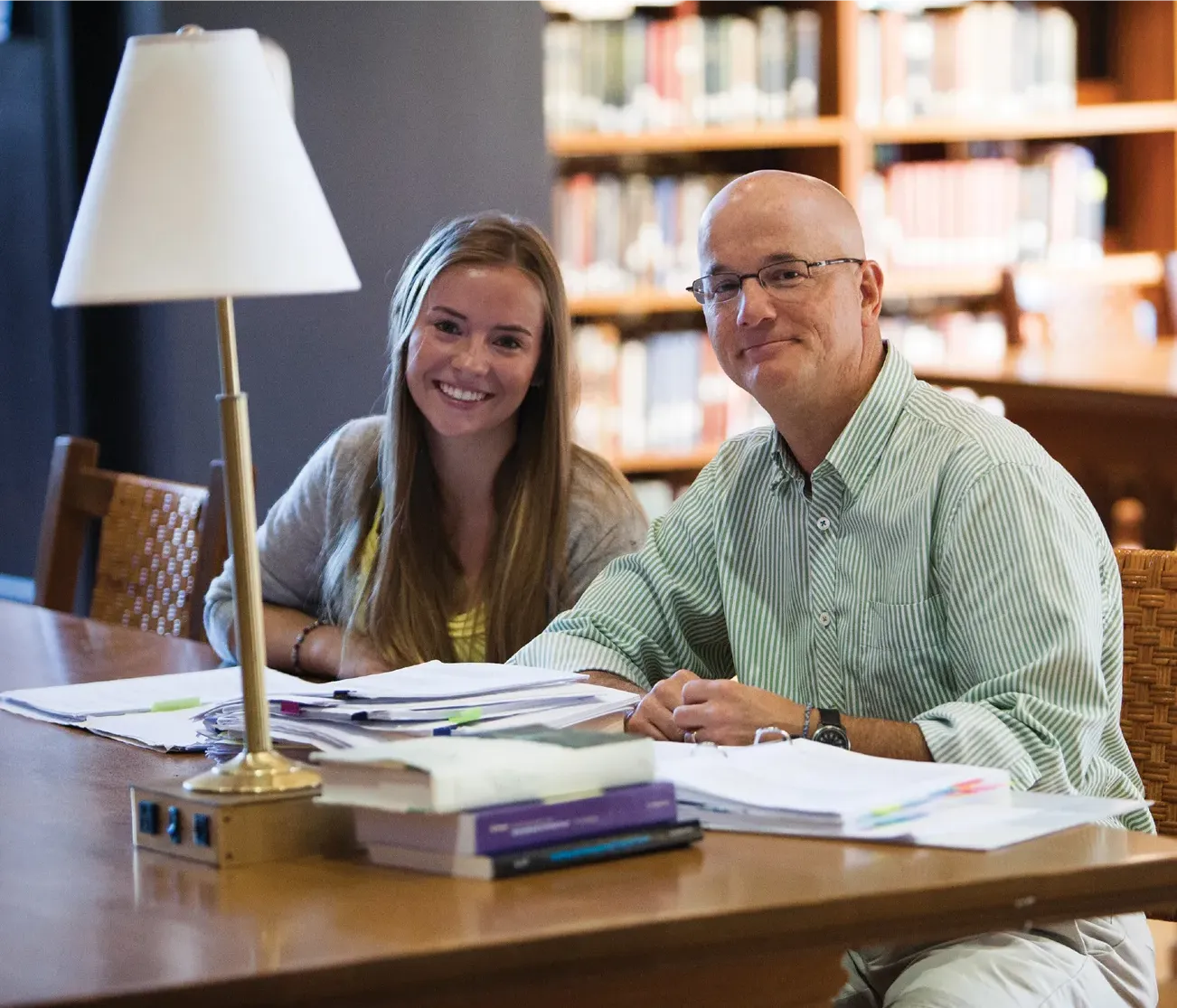
Lopez, who is also a Senior Corporate and Government Relations Consultant at the law firm Becker & Poliakoff, P.A., credits the power of the Vassar network with helping him break into his dream career—and relatively quickly at that. In his first year of law school, he applied “on a whim” to be an intern for the Clinton White House. “I was preparing to go work at a law firm as a summer associate, but one of the people in the intern office happened to be a Vassar grad, so I ended up getting a summer position in the Domestic Policy Office, where I was working on the second floor of the West Wing at the ripe old age of 23. It changed my life,” he says. “After that, I knew I wanted to focus on policy, so I finished my classes at law school in five semesters and came back to the Clinton White House to work at the Council on Environmental Quality. But it was the relationships and connections I made through that first internship that launched me.”
Ultimately, though, it was his first-year professor, Sidney Plotkin, who convinced Lopez that it was time for him to run for office. “The two of us keep in touch; when I’m in town we’ll get coffee at the Acropolis and have a three-hour talk fest,” says Lopez. “So, one day, I called him up and I said, ‘Is it the right time to run?’ He told me it was—he had insight into me that I didn’t have into myself.”
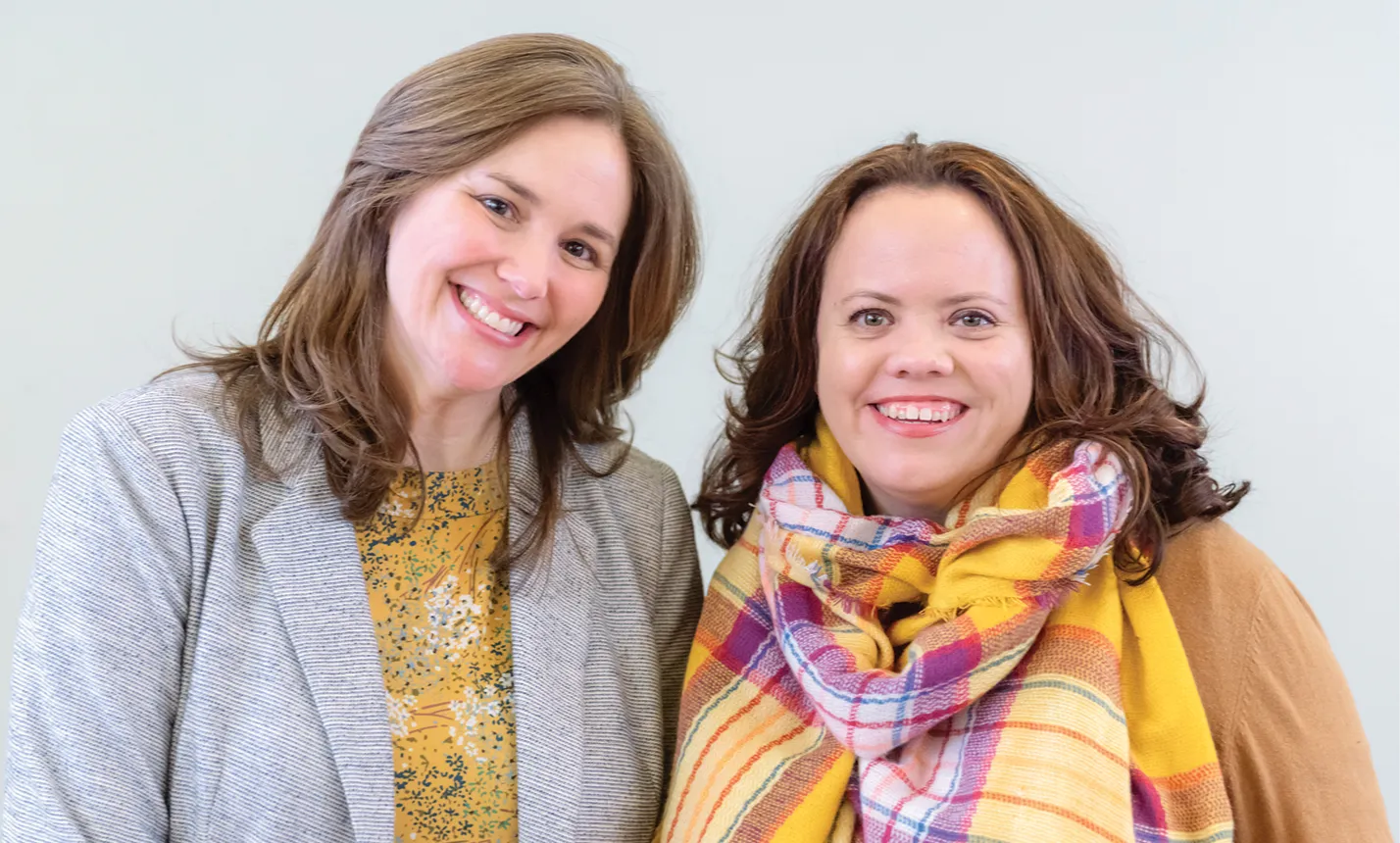
Karl Rabe
That’s one reason he was so excited to pay it forward and return to campus to be an SCC mentor in January of 2024. “Between breakfast and lunch that first day, I got one student’s CV, two phone calls from students, and made seven new LinkedIn friends,” he said with a laugh. He welcomed them all. “When students get in touch, I always try to make time and repay the debt I owe to all the amazing Vassar people who touched my life in direct or indirect ways,” he muses. “Because of my education and the Vassar network, I’ve had a career beyond my wildest expectations.”